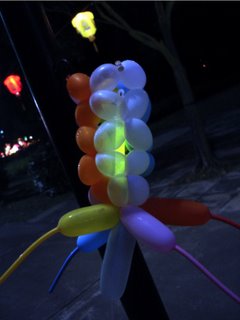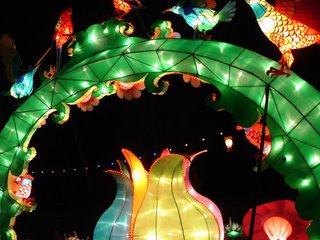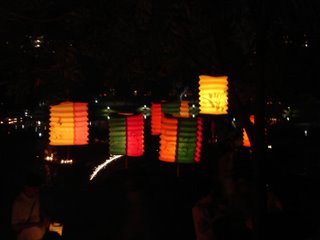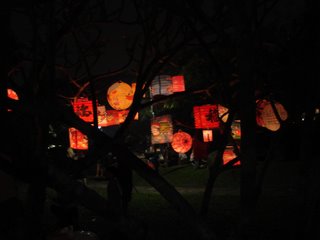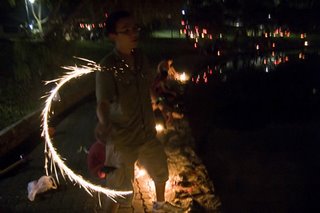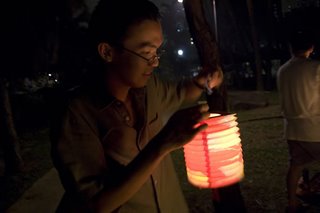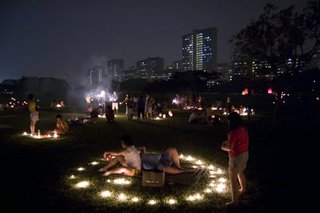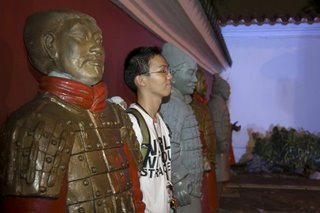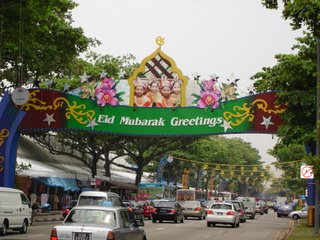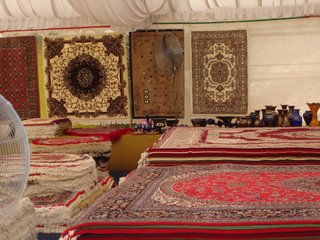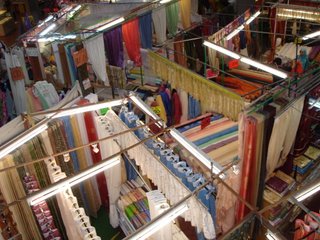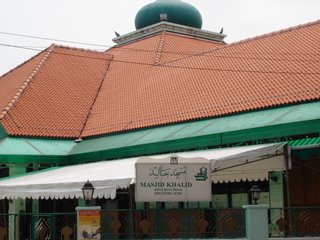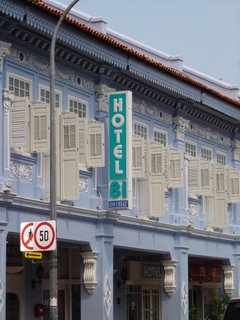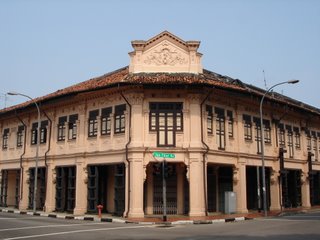Finally got a chance to update my blog. The last 2 weeks have been C.R.A.Z.Y. I was having my reading week and was trying to catch up on my essays and readings. Didn't do as well in the catching up as I expected. How I wish I do not have to sleep, where's those sleep replacement pill that was featured in those science
fiction novels?
Just turned in my philosophy essay, is working on my South East Asia reflection, and that's a dialogue I'm writing for chemistry class (it's a nonsensical convection between a guy name Ted and Mr. Methane), not forgetting my geography project which is a major worry for me, a couple of tests coming up, I'm also kind of worried about my South east Asia project, haven't thought of what to do yet. Whatever
lah.
Moving on to R&R. Mid-Autumn is just around the corner, and I went to Chinese garden last
friday to take some pictures of the lanterns. I'll also be going to
Bishan park this
friday for pictures taking and I'm not
ashame to admit, lantern carrying. Mid-Autumn is my favourite festival of the year, just about the only festival I enjoy. On another note, I've planned a trip with some friends to
Batam some time in November. Not very sensible since exams are held then, but I figured, what the heck.
I went to the Prime Minister dialogue, both the
pre-dialogue discussion and the actual dialogue. I enjoyed myself, saw a couple of friends from
NEA, met a few new ones and generally had a good time.
I find the actually dialogue more open that I've imagined, beside the few questioners that were 'appointed' during the
pre-dialogue discussion, the prime minister opened the floor for questions. The answers were somewhat 'old hat', meaning that it's nothing we have not heard before but we were actively encouraged to speak up. My impression from the dialogue and talking to a MP at the reception is that there is a big question mark from the government as to why there is a lack of involvement and voices from the young people. Doesn't help that all the voices in the web seems to be against the ruling party. Dr Vivian mentioned that we have one of the most accessible government in the world, that all the
MPs' and Ministers' emails are available to the public, and there are weekly meet-the-people session.
A teacher reflected there is a lot of fear of speaking out about race, religion and so on at the ground level. She wanted to set up a prayer area for Muslim students and the school respond is: "shhh!!!" No one dare to discuss it. I feel this has a lot to do with the government tough stand against anything that have to do with race and religion. The goal post shift so often and so sliently that most people just don't discuss it at all these days. I wonder if this is good for the long term healthy of our nation.
I didn't really take in much at the actual dialogue, reading the news have given me somewhat of a spider sense of what the respond will be like. There are a few interesting point I picked up at the
pre-dialogue discussion. One guy raised the issue of what's the purpose of oversea volunteering programmes organised by schools and youth organisation? Is it to help the people there, or to educate Singapore students? The cost of sending a team of students oversea to repair fences and paint a school could probably build 2 new schools in the area. That is something for us to think about. possibly if the aim is for the benefit of the student in exposing them to different culture, the parents would be more supportive.
The question of race came up, very strongly. A girl with brown hair said she was booked by a prefect in
JC for having dyed her hair brown. Problem is, she is born with brown hair. Her mother, being french I think, has brown hair. The
JC prefect gave a master augment against her claim: "No, your surname is
Lim, so you cannot have brown hair." Beautiful.
Another lady questioned the compulsory education of mother tongue based on your 'race' . What happened was that a boy who speaks Latin and English was shuffled into our education system and forced at the age of 10 to take Chinese classes. After a many appeals and letters to the
MPs was he finally allowed to drop the subject.
Many such responds followed. Inter-race marriage is the norm, globalisation...The common '
CMIO' Chinese, Malay, Indian, others division is been questioned by many as irrelevant in today's culture. The respond to that is the many older folks find a lot of pride in their race and would react negatively to it taken off, not forgetting about preserving the cultures, and roots... blah. Indeed I can understand the difficulty in doing away with the 'race' in our
IC. So much of our system is based on 'race', from who can stay in which
HDB flat, to what subjects you study in school...
But as Singapore open up, wouldn't there be more and more 'others'? Another funny tale that was shared by this lady with (
i'm guessing here, can't really remember) brown hair, tan skin, brown eyes, in short, nothing like
chinese, on how she can always start a conversion by saying: 'Hi, I'm a
chinese." Turns out that when she was 12, her
chinese mother brought her to SIR to declare her Singapore citizenship, and the civil servant sitting behind the desk asked her what's her race. She didn't want to be 'others' but she also don't want to be laugh at by being '
chinese' when she looks nothing like it. Anyway the choice is between
chinese and others. That's when the civil servant offered her this million dollar advice: "Why do you want to be one of
them, when you could be one of
us?" And that's how she was made a
chinese.
Janadas Devan wrote:
In my optimistic moments, I sometimes think race is merely a collective delusion that people share about their origins. Just substitute a better delusion for a worse one - call "the race of Abraham", for example, "White", instead of Arab and Jew - and there will be world peace. Regrettably, it is not as simple as that.
P/S: I heard the good news that
Singapore Dreaming won the
Montblanc screenwriters award. Congrats! They really did a great job. Hope to see more work from Colin and Yen Yen soon.



